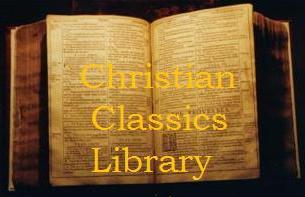St. Justin on Pre-determinism
For me, one great attraction of the theology of the Wesleys (and indeed other Anglicans like C.S. Lewis) is their strong assertion that we humans really are responsible agents, who make real choices with real consequences. Some Christians (who occasionally call themselves Calvinists, though I'm uncertain that John Calvin himself would willingly own their ideas) have taught that God controls everything so completely that we humans have no free choices at all but, like puppets on strings, do only what he has determined that we should do (which would lead to the strange assertion that God has predetermined that I should write this blog post rejecting such predeterminism...which would be a very odd thing for God to do).
The rejection of Predeterminism did not begin with the Wesleys or with Jacob Arminius (a Reformation-era theologian who influenced them); rather the belief in the genuineness of human choices and responsibility goes all the way back to the earliest Christians.
One of the Early Fathers to address this issue with remarkable clarity is St. Justin the Martyr (so named because he was killed for his faith in Christ). Justin Martyr was born around the year A.D. 100, only a few years after St. John the Apostle died. When Justin when to church, he was part of a community that had a living memory of the Apostles themselves who were taught and ordained by Christ. Even at this very early and pure stage the Church rejected the kind of determinism that denies real human choices. Here is how Justin puts it in his First Apology, Chapter XLIII:
The rejection of Predeterminism did not begin with the Wesleys or with Jacob Arminius (a Reformation-era theologian who influenced them); rather the belief in the genuineness of human choices and responsibility goes all the way back to the earliest Christians.
One of the Early Fathers to address this issue with remarkable clarity is St. Justin the Martyr (so named because he was killed for his faith in Christ). Justin Martyr was born around the year A.D. 100, only a few years after St. John the Apostle died. When Justin when to church, he was part of a community that had a living memory of the Apostles themselves who were taught and ordained by Christ. Even at this very early and pure stage the Church rejected the kind of determinism that denies real human choices. Here is how Justin puts it in his First Apology, Chapter XLIII:
Chapter XLIII.—Responsibility asserted.
But lest some suppose, from what has been said by us, that we say that whatever happens, happens by a fatal necessity, because it is foretold as known beforehand, this too we explain. We have learned from the prophets, and we hold it to be true, that punishments, and chastisements, and good rewards, are rendered according to the merit of each man’s actions. Since if it be not so, but all things happen by fate, neither is anything at all in our own power. For if it be fated that this man, e.g., be good, and this other evil, neither is the former meritorious nor the latter to be blamed. And again, unless the human race have the power of avoiding evil and choosing good by free choice, they are not accountable for their actions, of whatever kind they be. But that it is by free choice they both walk uprightly and stumble, we thus demonstrate. We see the same man making a transition to opposite things. Now, if it had been fated that he were to be either good or bad, he could never have been capable of both the opposites, nor of so many transitions. But not even would some be good and others bad, since we thus make fate the cause of evil, and exhibit her as acting in opposition to herself; or that which has been already stated would seem to be true, that neither virtue nor vice is anything, but that things are only reckoned good or evil by opinion; which, as the true word shows, is the greatest impiety and wickedness. But this we assert is inevitable fate, that they who choose the good have worthy rewards, and they who choose the opposite have their merited awards. For not like other things, as trees and quadrupeds, which cannot act by choice, did God make man: for neither would he be worthy of reward or praise did he not of himself choose the good, but were created for this end;1855 nor, if he were evil, would he be worthy of punishment, not being evil of himself, but being able to be nothing else than what he was made.
Labels: Early Church Fathers, Methodism, Theology and Ministry, Witness of the Saints











